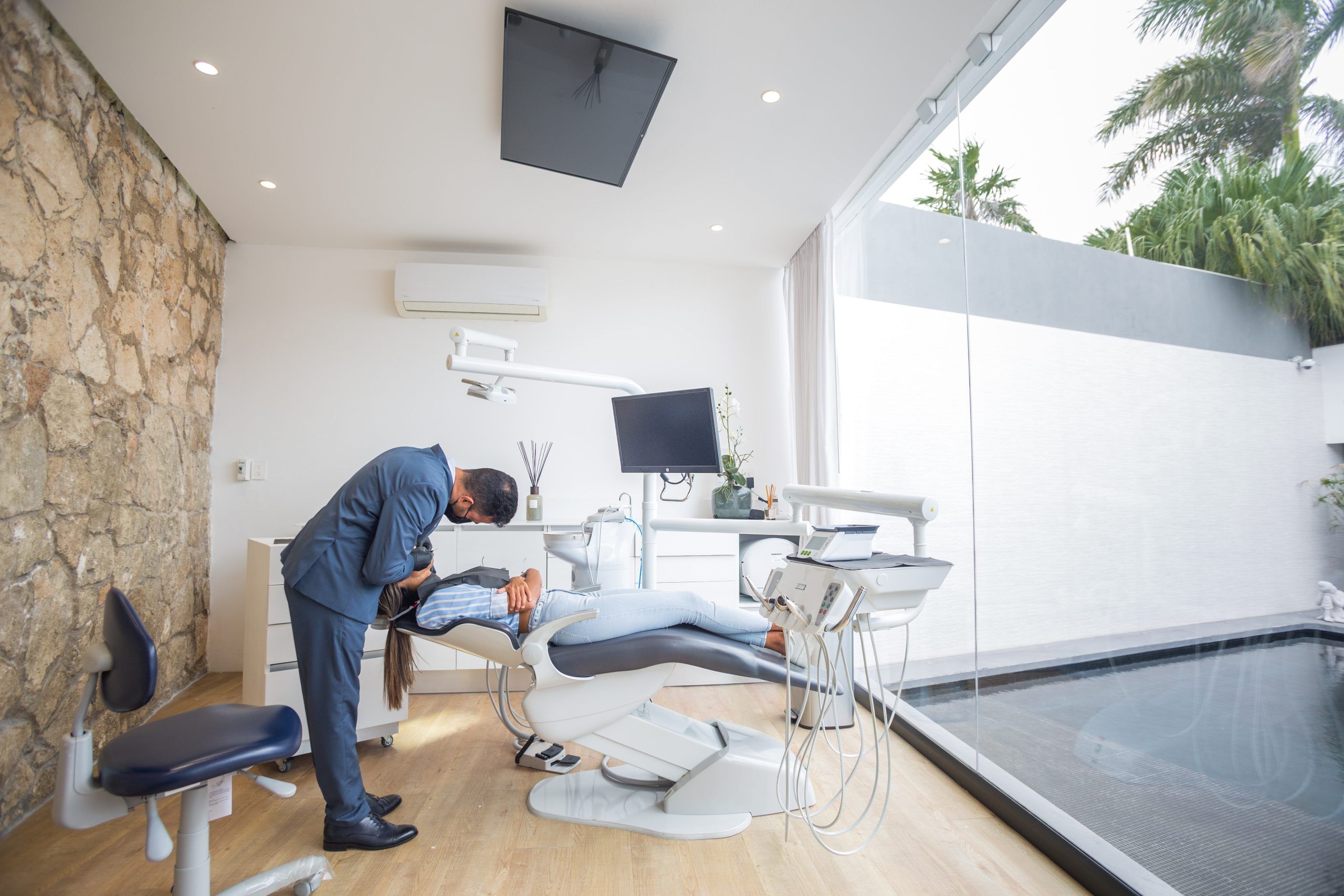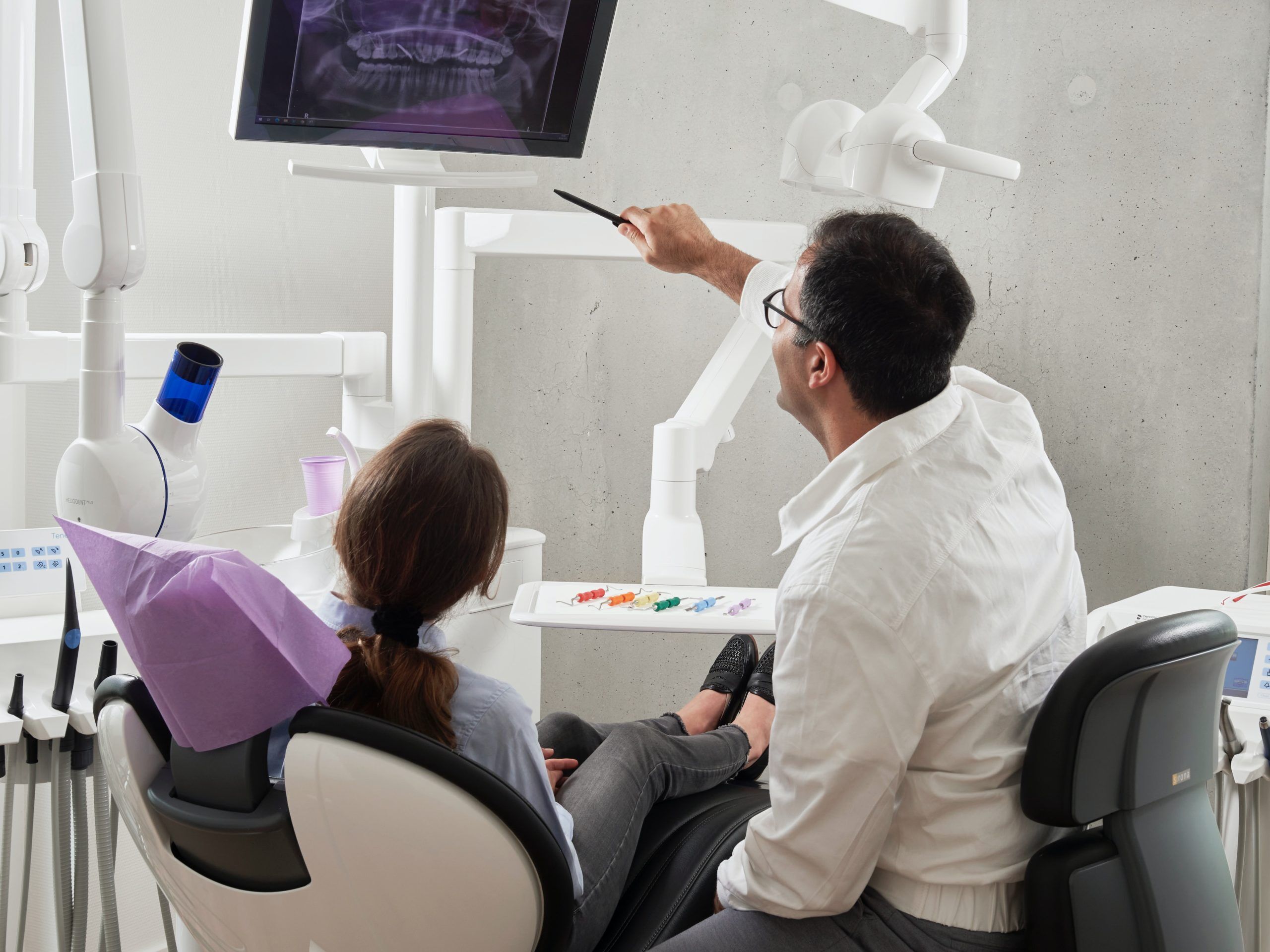Author: nearmedental
Facts: Studies show that more than 53 percent of adults visited the dentist at least once in the past 6 months.
Regular dental examination is vital for maintaining healthy gums and teeth. Sometimes, this may involve undergoing a digital x-ray procedure to identify any underlying issues.
In the past, you would not need to undergo an x-ray unless it was necessary. However, with the many advancements in dental technology, the procedure can be carried out efficiently and more regularly.
Dental x-rays are not compulsory unless your teeth develop certain problems. Once you visit your dentist for a check-up, the dentist may ask you to take a digital x-ray depending on the condition of your teeth. This is especially important if you are undergoing any dental treatments such as fillings and alignment.
Let us look at some of the benefits of having a dental x-ray done:
Detection of Hidden Problems
A dental x-ray helps identify any decayed sections of your teeth. This decay is often invisible to the dentist and may never be detected without the procedure. Spotting such decay early enough enables your specialist to stop it before it causes problems such as periodontal or gum disease.
If your teeth have cavities, regular x-rays will be carried out to ensure that they remain small, reducing the size of fillings required to repair them. Large cavities often need larger fillings to repair. If they become too big, they result in toothaches or the need for root canal treatment. All this can be avoided through dental x-rays.
Tracking Tooth Development
Dental x-rays can be used in children to monitor and ensure proper tooth alignment. They help prevent unnecessary pain and facilitate better development of adult teeth.
The dentist can use the x-ray to reduce the chance of adult teeth growing too quickly underneath baby teeth before they loosen entirely.
Children who have a history of dental decay may also need an x-ray examination in case the problem persists to monitor the cause and resolve it appropriately.
Managing Infections
Sometimes, you may experience unusual pain in your teeth whose cause is not visible. Dental x-rays present your specialist with a picture of your entire tooth, from top to bottom. If your tooth has developed an infection, it will be visible at the tip of its root.
The x-ray will help identify the tooth that is causing you pain and solve the problem using the best option that the dentist recommends.
Establishing Bone Loss
For individuals suffering from severe dental decay or periodontal disease, the dentist may recommend using an x-ray to establish the extent of bone loss. The results of the procedure will assist in determining the right treatment you should receive.
Different dental procedures are recommended for varying levels of decay. Allowing your dentist to recommend the best treatment option through an x-ray ensures that your dental problem is entirely resolved.
Determining the Fit for Certain Dental Procedures
Patients who are planning to get braces, invisalign and dentures must get an x-ray done to determine if they are fit for these procedures. Carrying out this assessment informs the dentist if any teeth need to be extracted for the process to work.
Installing any of these treatments without the necessary assessments may hurt your teeth and gums.
If you face severe dental problems such as oral cancer, lymphoma, and cysts, you will need an x-ray to ascertain how far the condition has spread within and outside the mouth.
Digital Dental X-rays
Many patients avoided older versions of dental x-rays because of exposure to radioactive materials, which is known to damage the body’s delicate organs.With the invention of digital x-rays, dentists can now capture high-quality images through a procedure that bears approximately 75 percent less exposure to radioactive material than older x-ray methods.
The use of dental software enhances the efficiency of the image capturing process into high resolution. This results in more accurate detection of dental problems.
The importance of carrying out dental x-rays is invaluable, both to the dentist and the patient. Most dental procedures require accurate x-rays to resolve. The procedure saves many lives because it provides a clear picture of the problems lying in the patient’s skeletal system. Such problems are impossible to detect with the naked eye.
Imaging makes Everything Clear
With x-rays, the dentist does not need to perform a surgical procedure to identify any problems with your bones. Through the procedure, any cavities, decay and tartar buildup can be easily detected and resolved before multiple outbreaks occur. The need and frequency of x-ray depend on your health and clinical history.


